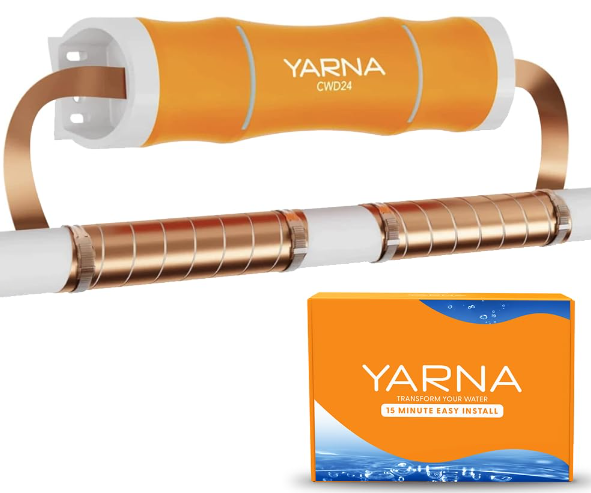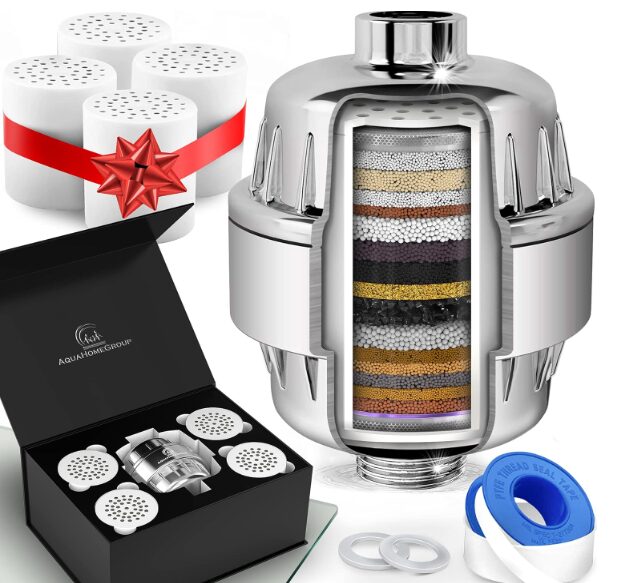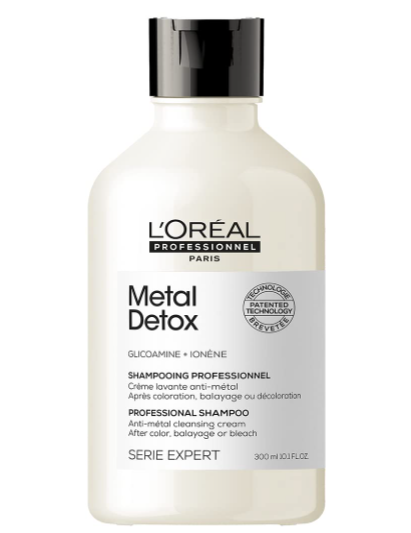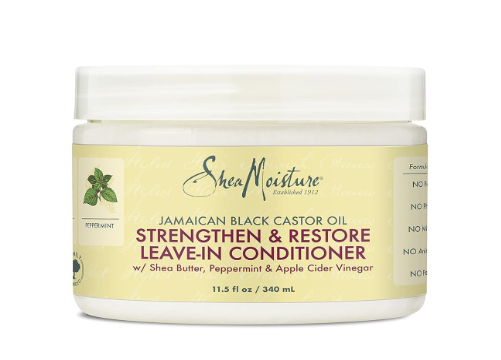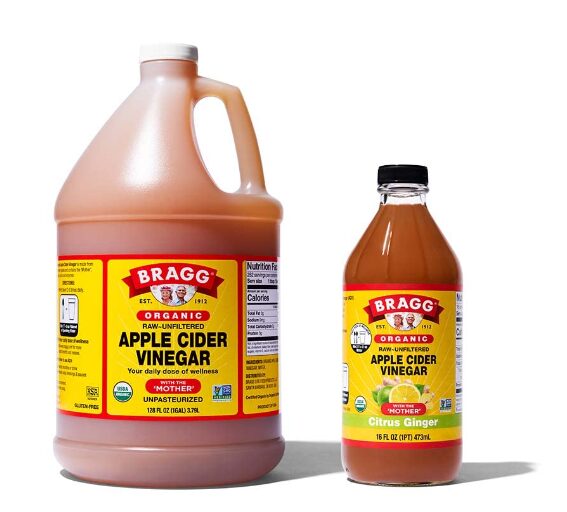How to wash hair with hard water. Having hard water can be a challenge when it comes to washing your hair. The high concentration of minerals in hard water can leave your hair feeling dry, dull, and prone to damage. But don’t worry, we’ve got you covered with some tips and solutions to help you care for your hair in hard water.
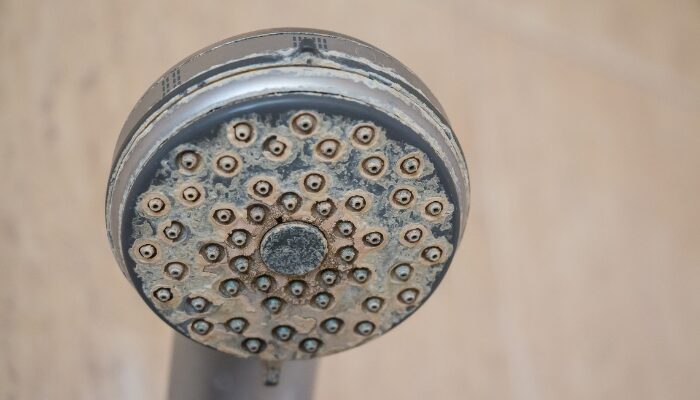
- Hard water contains mineral salts that can leave a residue on your hair.
- Signs of hard water hair damage include lack of shine, increased frizz, and a flaky scalp.
- To combat the effects of hard water, consider using a water softener or a showerhead filter.
- Chelating shampoos and leave-in conditioners can help remove mineral build-up and moisturize your hair.
- Other remedies like vinegar rinses and citrus rinses can restore shine and eliminate mineral build-up.
Understanding the Effects of Hard Water on Hair
Hard water, characterized by a high concentration of dissolved minerals, can have detrimental effects on your hair. When you wash your hair with hard water, the minerals in the water can interact with your shampoo and conditioner, resulting in mineral build-up on your hair and scalp. This build-up can leave your hair feeling dry, brittle, and dull.
One of the main reasons hard water affects the hair is that it makes it difficult for water to effectively interact with soap and hair care products. As a result, the minerals in the hard water are left behind on the hair shaft, creating a layer of residue. Over time, this mineral build-up can lead to dryness, breakage, and lack of shine.
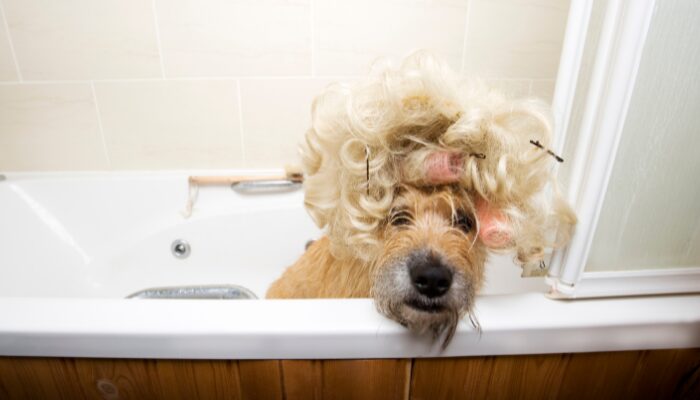
In addition to causing dry and brittle hair, hard water can also have negative effects on color-treated hair. The mineral build-up can cause hair color to fade quickly, leaving your hair looking dull and lackluster.
To help you understand the effects of hard water on your hair, here is a table outlining the main issues and their impact:
| Effect of Hard Water on Hair | Impact on Hair |
|---|---|
| Scalp Mineral build-up | Dryness, brittleness, and lack of shine |
| Hair Color Fading | Dull and lackluster appearance |
As you can see, the effects of hard water on hair can be significant. Fortunately, there are solutions available to help mitigate these effects and restore the health and vitality of your hair. In the next section, we will explore the signs of hard water hair damage and provide tips on how to protect and nourish your hair.
Article-How to keep colored hair vibrant
Signs of Hard Water Hair Damage
How to wash hair with hard water to reduce hair damage. If you’re experiencing issues with your hair, such as a lack of shine, increased frizz, or a flaky scalp, it could be a result of hard water hair damage. Hard water minerals can build up on your hair, leading to various problems that affect its health and appearance.
One of the most noticeable signs of hard water hair damage is a lack of shine. Instead of having a glossy and lustrous look, your hair might appear dull and lifeless. This is because the mineral build-up inhibits light reflection, making your hair look flat and lackluster.
Another common sign is increased frizz. Hard water minerals can disrupt the natural moisture balance of your hair, making it dry and prone to frizz. This can be especially frustrating for those with curly or textured hair, as the frizz can be difficult to manage and style.
A flaky scalp is also a telltale sign of hard water hair damage. The mineral build-up can irritate the scalp, leading to dryness and flaking. If you notice white or grayish flakes on your scalp or in your hair, it’s likely a result of hard water. Read our guide on how to remove scalp build up here.
In severe cases, hard water hair damage can even lead to hair loss. The accumulation of minerals on the scalp can clog hair follicles, inhibiting healthy hair growth. If you’re experiencing excessive shedding or thinning hair, it’s important to address the issue of hard water.
To summarize, signs of hard water hair damage include:
- Lack of shine
- Increased frizz
- Flaky scalp
- Hair loss
Understanding these signs can help you identify and address the effects of hard water on your hair.
Solutions for Washing Hair in Hard Water
If you’re struggling with the effects of hard water on your hair, fret not! There are several effective solutions that can help combat this problem. By incorporating these remedies into your hair care routine, you can minimize the damage caused by hard water and keep your locks looking healthy and beautiful.
1. Install a Water Softener
A water softener is a great investment if you want to significantly reduce the concentration of minerals in your water. This device works by replacing the calcium and magnesium ions, which cause hardness, with sodium or potassium ions. By installing a water softening system in your home, you can prevent mineral build-up on your hair and enjoy softer, more manageable locks. View Water Softeners On Amazon
2. Use a Showerhead Filter
Another effective solution is to install a showerhead filter. This device attaches to your shower and filters out the minerals present in hard water. It ensures that the water flowing onto your hair is free from harmful impurities that can lead to dryness and damage. With a showerhead filter, you can enjoy a luxurious shower without worrying about the negative effects of hard water on your hair. View Shower Head Filter On Amazon.
3. Try Chelating Shampoos
Chelating shampoos are specifically formulated to remove mineral and product build-up from the hair. These shampoos contain chelating agents, such as EDTA or citric acid, which bind to the minerals and remove them from the hair shaft. By incorporating a chelating shampoo into your hair care routine once a week, you can effectively eliminate the build-up caused by hard water and restore your hair’s natural shine and vibrancy.
4. Moisturize with Leave-in Conditioner
Hard water can strip the hair of its natural oils, leading to dryness and brittleness. To combat this, it’s crucial to replenish lost moisture with a leave-in conditioner. This type of conditioner is applied to the hair after washing and is not rinsed out. It provides extra hydration, nourishment, and protection, leaving your hair soft, smooth, and frizz-free.
| Solution | Description |
|---|---|
| Water Softener | Reduces the concentration of minerals in the water, preventing mineral build-up on the hair. |
| Showerhead Filter | Filters out minerals from hard water, ensuring cleaner and safer water for your hair. |
| Chelating Shampoos | Designed to remove mineral and product build-up from the hair, restoring its shine and vitality. |
| Leave-in Conditioner | Provides much-needed hydration and protection to counterbalance the drying effects of hard water. |
Additional Remedies for Hard Water Hair Woes
In addition to the aforementioned solutions, there are other remedies you can try to combat the effects of hard water on your hair. These remedies can help remove mineral build-up, restore shine, and detoxify your hair.
Vinegar Rinse
How to wash hair with hard water and apple cider vinegar. A vinegar rinse is a simple and effective way to remove mineral build-up from your hair. Simply mix equal parts of vinegar and water, and use it as a final rinse after shampooing and conditioning. The acidic properties of vinegar help break down the minerals, leaving your hair cleaner and more manageable.
Citrus Rinse
How to wash hair with hard water using citrus juice. A citrus rinse is another natural remedy that can help remove mineral residues and boost the shine of your hair. Squeeze the juice of a lemon or an orange into a bowl of water and use it as a final rinse. The citric acid in the citrus fruits helps dissolve the minerals, leaving your hair refreshed and vibrant.
Metal Detox Treatment
A metal detox treatment can be beneficial if your hair has accumulated minerals like copper from hard water. Look for products specifically formulated for metal detox, and follow the instructions for use. These treatments help remove heavy metals and restore the natural balance of your hair.
Clarifying Shampoo
Regular use of a clarifying shampoo can help eliminate residue and bring back the natural shine of your hair. Look for clarifying shampoos that are specifically designed for hard water or mineral build-up. These are the best shampoos for hard water conditions as they contain ingredients that help break down and remove the minerals, leaving your hair clean and refreshed.
| Remedy | Description |
|---|---|
| Vinegar Rinse | A mixture of vinegar and water used as a final rinse to remove mineral build-up and restore shine. |
| Citrus Rinse | A mixture of lemon or orange juice and water used as a final rinse to dissolve mineral residues and enhance shine. |
| Metal Detox Treatment | Products specifically formulated to remove heavy metals from the hair, restoring its natural balance. |
| Clarifying Shampoo | Shampoos designed to eliminate residue and restore the natural shine of the hair by breaking down and removing minerals. |
Long-Term Solutions for Hard Water Hair
If you’re looking for a more permanent solution on how to wash hair with hard water and to combat the effects of hard water on your hair, there are two options you can consider: a whole-house water softening system and a Corro-Protec Powered Anode Rod for your water heater.
An entire-house water softening system is a comprehensive solution that removes minerals from all the water in your home. This means every faucet, shower, and washing machine will deliver soft water that is gentle on your hair.
Another cost-effective alternative is the installation of a Corro-Protec Powered Anode Rod in your water heater. This advanced technology helps improve water quality and prevents corrosion, ensuring that the water flowing through your pipes is less damaging to your hair.
| Long-Term Solutions for Hard Water Hair | Pros | Cons |
|---|---|---|
| Whole-house water softening system | – Removes minerals from all water sources in your home – Provides consistent, gentle water for hair care – Protects appliances from scale build-up | – Initial installation cost – Requires maintenance and occasional salt refills |
| Corro-Protec Powered Anode Rod | – Improves water quality – Reduces corrosion – Cost-effective solution | – Only treats the water heated by your water heater – May require professional installation |
Managing Hair in Hard Water on a Budget
If you’re on a budget, there are still options available on how to wash hair with hard water to reduce hair damage. Here are a few affordable solutions:
Purple shampoo: To reduce the appearance of yellowing in blonde or gray hair, consider using purple shampoo. It helps neutralize brassy tones and keeps your hair looking fresh and vibrant.
Metal detox products: Remove minerals and build-up from your hair with metal detox products. These can effectively clarify your hair and restore its natural shine.
Regular use of clarifying shampoos: Keep your hair clean and free from residue by using clarifying shampoos regularly. These shampoos deeply cleanse your hair and scalp, removing any mineral build-up and maintaining overall hair health.
Leave-in conditioners: After washing your hair in hard water, it’s essential to replenish moisture. Apply leave-in conditioners to lock in hydration, reduce frizz, and keep your hair nourished and manageable.
Product Comparison
| Product | Purpose | Benefits |
|---|---|---|
| Purple Shampoo | Reduce yellowing in blonde or gray hair | Neutralizes brassy tones, keeps hair vibrant |
| Metal Detox Products | Remove minerals and build-up | Restores shine, clarifies hair |
| Clarifying Shampoos | Deeply cleanse hair and scalp | Removes mineral build-up, maintains hair health |
| Leave-in Conditioners | Locks in moisture, reduces frizz | Nourishes and manages hair |
Final Rinse with Filtered Water
To minimize the effects of hard water on your hair, consider incorporating a final rinse with filtered or bottled water into your hair care routine. While this may not completely remove all the minerals present in hard water, it can help reduce residue and minimize damage to your precious locks.
Hard water can leave behind a mineral build-up on your hair, making it dull, dry, and prone to breakage. By using filtered water for the final rinse, you can help counteract the negative effects of hard water and promote healthier hair.
When you rinse your hair with filtered water, it helps to wash away any lingering minerals that may have been left behind during the previous wash. This final rinse acts as the last step in your hair care routine, providing a clean and pure rinse that helps eliminate residue and leaves your hair looking and feeling fresher.
Filtered water is often free from the minerals found in hard water, such as calcium and magnesium. As a result, it can help reduce the build-up of these minerals on your hair, making it easier to manage and style. Additionally, filtered water can also help restore the natural shine and softness of your hair.
To incorporate a final rinse with filtered water into your routine, simply follow these steps:
- After shampooing and conditioning your hair, thoroughly rinse out the products using regular tap water.
- Prepare a container or bottle with filtered or bottled water.
- Tilt your head back and slowly pour the filtered water over your hair, ensuring that it covers all areas.
- Gently massage your scalp and hair to ensure the filtered water reaches all the strands.
- Leave the filtered water on your hair for a couple of seconds or rinse it out if desired.
- Proceed with styling your hair as usual.
By incorporating a final rinse with filtered water into your hair care routine, you can help reduce the residue and damage caused by hard water. Remember to always use filtered or bottled water for this final rinse to achieve the best results, removing mineral buildup from hair.
Next, we will explore additional tips and tricks to protect your hair from the damaging effects of hard water.
Tips to Protect Hair from Hard Water
Tips for washing hair in hard water. To protect your hair from the damaging effects of hard water, it is crucial to identify the signs of damage and take proactive measures. Here are some tips to help you maintain healthy and vibrant hair:
1. Identify Signs of Hard Water Damage
It is important to be aware of the signs that indicate your hair is being adversely affected by hard water. Some common signs include:
- Dull and lackluster hair
- Increased frizz and dryness
- Difficulty in styling and detangling
- An itchy and flaky scalp
By recognizing these signs, you can take appropriate steps to protect your hair from further damage.
2. Use Moisturizing Ingredients
When washing your hair with hard water, opt for shampoos and conditioners that contain moisturizing ingredients. Look for products infused with natural oils like jojoba oil, almond oil, and coconut oil. These ingredients help to nourish and hydrate your hair, combating the dryness caused by hard water.
3. Regularly Use Clarifying Shampoo
Regularly incorporating a clarifying shampoo into your hair care routine can help remove mineral residue from hard water. Clarifying shampoos are specifically formulated to deep clean the hair and scalp, getting rid of build-up and restoring natural shine. Aim to use a clarifying shampoo once or twice a week to keep your hair free from residue and maintain its health. Sulfate-free shampoos for hard water washing are highly advised.
By following these tips and adopting a hair care routine designed to combat the effects of hard water, you can protect your hair and keep it looking its best.

Final Thoughts – How to wash hair with hard water
How to wash hair with hard water to reduce hair damage and scalp build up. Hair care in hard water locations. Keeping your hair healthy and vibrant in hard water can be a challenge, but it’s not impossible. By understanding the effects of hard water and implementing effective solutions, you can prevent damage and maintain beautiful hair.
One of the key solutions to combat the effects of hard water is to invest in water softeners or shower filters. These systems remove minerals from the water, ensuring that your hair is not subjected to the damaging effects of mineral build-up. Softening hard water for hair washing use is not as difficult as it may seem when using a simple inline shower filter!
In addition, using appropriate hair care products that are specifically formulated for hard water can make a significant difference. Look for shampoos and conditioners that contain moisturizing ingredients to keep your hair hydrated and protected.
Regular use of clarifying shampoos can also help remove residue and maintain the natural shine of your hair. By following these tips and incorporating effective solutions, you can maintain healthy hair, even in the presence of hard water.
FAQ – How to Wash Hair with Hard Water
How can I wash my hair with hard water?
To wash your hair with hard water, you can try using chelating shampoos or clarifying shampoos to remove mineral build-up. You can also consider installing a water softener or showerhead filter to reduce the concentration of minerals in the water. Using leave-in conditioners can help moisturize your hair after washing.
What are the effects of hard water on hair?
Hard water can cause mineral build-up on the hair, making it dry and brittle. This can lead to a lack of shine, increased frizz, and a flaky scalp. Hard water can also make color-treated hair fade quickly.
How can I identify signs of hard water hair damage?
Signs of hard water hair damage include a lack of shine, hair that’s hard to detangle, increased frizz, a flaky scalp, and even hair loss. Hard water minerals can build up on the hair, resulting in discoloration and a dull appearance.
What solutions are available for washing hair in hard water?
You can install a water softener or a showerhead filter to reduce the concentration of minerals in the water. Chelating shampoos and clarifying shampoos can remove mineral build-up from the hair. Using leave-in conditioners can help moisturize the hair after washing.
How to wash hair with hard water using rinses?
Yes, you can try a vinegar rinse or a citrus rinse to remove mineral build-up and restore shine to the hair. A metal detox treatment can also remove minerals like copper from the hair. Regular use of clarifying shampoos can help eliminate residue and bring back the natural shine of the hair.
What are some long-term solutions for hard water hair?
For a more permanent solution, you can consider installing a whole-house water softening system, which can remove the minerals from all the water in your home. Another option is to install a Corro-Protec Powered Anode Rod in your water heater to improve water quality and prevent corrosion.
How can I manage my hair in hard water on a budget?
If you’re on a budget, you can use purple shampoo to reduce the appearance of yellowing in blonde or gray hair. You can also try metal detox products to remove minerals from the hair. Regular use of clarifying shampoos and leave-in conditioners can help maintain moisture and shine.
Should I do a final rinse with filtered water to minimize the effects of hard water?
Yes, doing a final rinse with filtered or bottled water can help reduce residue and minimize damage to the hair. While it may not completely remove the minerals, it can help mitigate the effects of hard water.
How can I protect my hair from the effects of hard water?
To protect your hair from the effects of hard water, it’s important to identify the signs of damage. Use hair care products with moisturizing ingredients like jojoba oil, almond oil, and coconut oil. Regularly use clarifying shampoos to remove residue and maintain the natural shine of your hair.
How can I maintain healthy hair in hard water?
Maintaining healthy hair in hard water requires understanding the effects of hard water and implementing effective solutions such as water softeners, shower filters, and appropriate hair care products. By taking these steps, you can protect your hair from damage and keep it looking its best. We hope you found this article informative and now know how to wash hair with hard water with confidence.
Table of Contents


